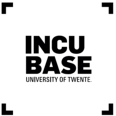As a graduate of the Master’s in Applied Mathematics, specialised in Operations Research, you will be a great asset to many (consultancy) organisations in a wide variety of sectors. You might launch a career as a technical consultant, business analyst or data scientist, to name a few of your many options. Of course, you can also opt to further develop yourself by continuing with a PhD- or EngD-programme. Are you a real entrepreneur? You might also start up your own business in the future!
Type of degree
Upon graduation, you will receive a Master’s degree in Applied Mathematics. Also, you can title yourself Master of Science (MSc). Your specialisation will be mentioned specifically on your diploma supplement, highlighting your specialised knowledge and skills in operations research.
Job opportunities
The majority of students graduating with the specialisation in Operations Research end up in consulting positions within all kinds of organisations. You may find yourself assisting hospitals in designing more efficient logistical processes, but you could also be in charge of improving logistical processes in business or retail. Or what about paving the way towards new mobility concepts to reach higher levels of sustainability?
Whichever career path you choose, you will be sure of great career opportunities as many companies are looking for expert mathematicians who can contribute to all kinds of optimisation and operations challenges. Your in-depth, context-independent mathematical knowledge makes you a valuable asset within many different sectors. Graduates of this specialisation found exciting jobs within all kinds of organisations, varying from Witteveen+Bos, Deloitte, Ortec, Quintic, A.S.R. Insurance, NS, Heineken, Shell, and Nike, to name just a few of the various examples.
Start a business
Do you have a great business idea? At the University of Twente, you can turn it into reality! At UT, we highly encourage entrepreneurship. In fact, with over 1,000 start-ups to its name, UT is recognised as one of the most entrepreneurial universities in the Netherlands. Did you know that big international companies like Booking.com and Just Eat Takeaway were once founded by students of UT? We are keen to put your scientific knowledge to practical use in solutions that people and society need. Your innovative ideas, creativity and the courage to put in the extra mile will be rewarded. As a catalyst for meaningful entrepreneurship, we offer you the Novel-T foundation and their start-up hub Incubase on campus.
Former students have gone before you. For example, one of the founders of the leading sports analytics company SciSports is a graduate of the Master’s in Applied Mathematics. Or you might start up your own consultancy company, like one of our other graduates did.
Post-master opportunities
Instead of pursuing a professional career right after obtaining your Master’s degree, you can opt for an academic career by completing a PhD or an EngD. An EngD programme is more practically oriented and aligned with direct problem solving and addressing design needs of a particular industry whereas a PhD programme is more focused on research. You can follow both types of programmes at the Twente Graduate School (TGS).
Continue as a researcher: obtain a PhD
A PhD (Doctor of Philosophy) entails studying and carrying out research in a particular area for a period of four years. You can do this within one of our research groups or our structured PhD programmes. An integral part of a PhD is writing your PhD thesis and presenting and defending your research publicly. Obtaining a PhD gives you the title Doctor (Dr).
Follow an EngD programme
You can also choose to follow an EngD programme after graduation. Such a programme usually takes two years and prepares you to become a high-level technological designer. Upon successful completion, you will receive a certified diploma and the academic degree title Professional Doctorate in Engineering (EngD).

